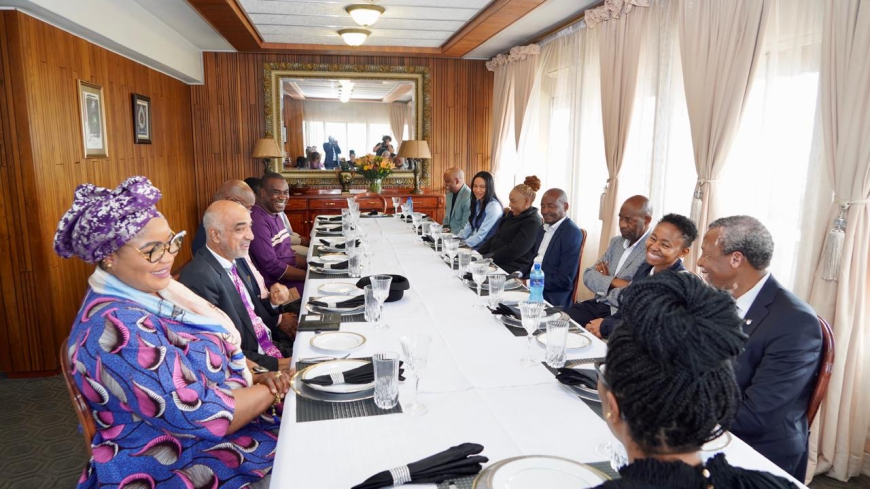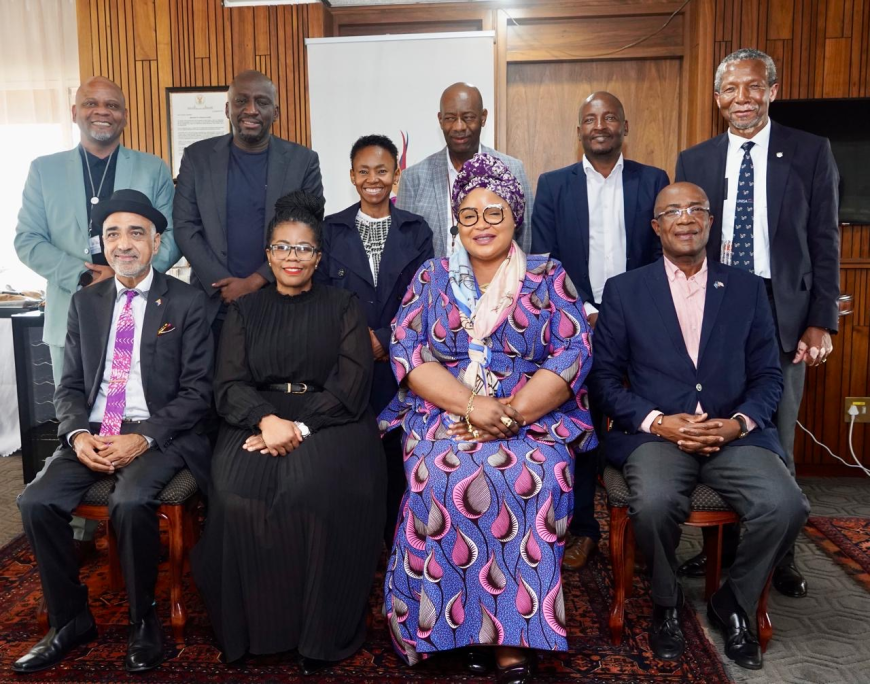Liberia Eyes UNISA Alliance for Public Service Reform”

South Africa: Liberia’s Minister Without Portfolio, Honorable Mamaka Bility, is leading an important study visit to South Africa. During this trip, she is meeting with key institutions such as the University of South Africa (UNISA) and the Department of Planning, Monitoring, and Evaluation (DPME), which is part of the South African Presidency.
This visit is happening because South Africa’s Minister in the Presidency for Planning, Monitoring, and Evaluation, Honorable Maropene Ramokgopa, invited her. The goal of the visit is to create a strong and helpful partnership that will support Liberia’s Presidential Delivery Unit (PDU). This is a very important department that works directly under the Office of the President of Liberia and is led by Minister Bility.

While visiting UNISA, Minister Bility met with the university’s Principal and Vice-Chancellor, Professor Puleng LenkaBula. During their meeting, she explained how important it is to improve the skills of Liberia’s current public service workers. She said, “We already have hardworking staff in the Presidential Delivery Unit. Instead of hiring new people, we want to help our current team grow by giving them proper training through online learning programs in Monitoring and Evaluation (M&E). UNISA is the right partner for this. With your skills in online education and creating courses, we can make a program that fits Liberia’s situation.”
UNISA is Africa’s biggest and oldest university for open and distance learning. It has more than 400,000 students worldwide. It is known for its research and special programs in government, public service, and planning. This makes it a perfect partner for Liberia’s plans to improve how government services are delivered.
During their talks, both sides discussed working together to create special training programs for government workers—like project managers, engineers, and technicians. They agreed that the training should be easy to expand, last a long time, and focus on skills that are useful in Liberia. The goal is not just to train people but also to build systems that help keep and use this knowledge across Liberia’s development efforts.
Professor LenkaBula gave strong support for the partnership. She said, “This partnership is part of our main goal—to help Africans grow through education. Just like we have worked with Sudan, Ethiopia, and Eritrea, we will also help Liberia build strong institutions that can lead change from within.”
The visit also showed how important universities are in helping Africa grow together both economically and politically. Other topics they discussed included education in farming, training for building infrastructure, and helping young people. Since support from groups like USAID is currently paused, Liberia wants to find its own ways to solve problems—like school garden projects to improve food and nutrition for children. UNISA’s agriculture department may become a partner in this work.
South Africa’s Ambassador to Liberia, His Excellency Professor Iqbal Jhazbhay, also joined the meetings. His role helped connect the academic and diplomatic (government) parts of this new relationship.
This partnership is also important because of history. Liberia supported South Africa during the fight against apartheid. Years ago, Liberia’s former President and Nobel Prize winner, Ellen Johnson Sirleaf, gave an important speech at UNISA. This shows the strong connection between the two countries.
Minister Bility said, “This visit is not just about training. It’s about creating a strong connection between two African countries that believe in sharing knowledge, helping each other, and growing together. We’re not just here to learn. We are here to work together, create new ideas, and build systems that will help our people for a long time.”
The visit will last for six days. At the end of the trip, the two sides will sign a Memorandum of Understanding (MOU) between Liberia’s PDU and UNISA. This agreement will begin a long-term partnership focused on quality, empowerment, and African-led development.
What's Your Reaction?






































































